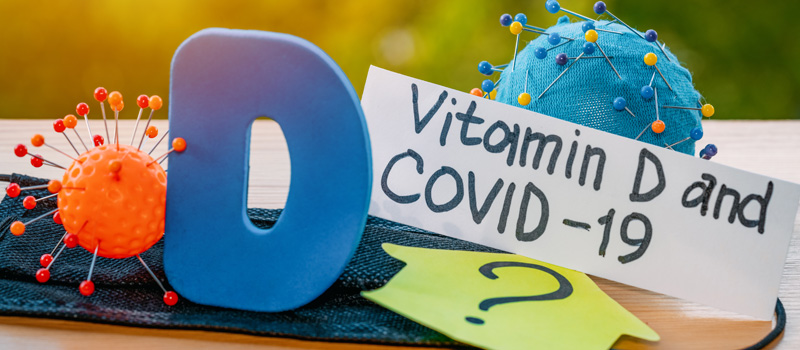By Susan Fanta, M.D., Board Certified – Internal Medicine
I have been approached by numerous patients about whether they should consume a supplement of vitamin D to aid in protection against COVID-19. There is good evidence that vitamin D plays a role in the development and regulation of our immune system. Even before this current pandemic, research reported in 2017 showed vitamin D supplementation provides protection against acute respiratory tract infections. Because of this prior research, vitamin D has gotten great attention and has been claimed as potentially protective against COVID-19. One needs to proceed cautiously, as to this date the research on vitamin D and its effect on COVID-19 is sparse.
Let us first provide some background on vitamin D. It can be naturally present in foods, added to others and available as a dietary supplement. Vitamin D is also produced in our skin with sun exposure. Further conversion in the liver and kidney make the active form, called calcitriol. It is this active form that promotes calcium absorption in the gut, ultimately maintaining adequate levels of calcium and phosphate to allow healthy bone formation. It appears also that vitamin D plays a role in body inflammation, cell growth, health of our nerves and muscles and even glucose metabolism. Despite playing such a key role in many different processes in the body, the evidence is either inadequate or too contradictory to make any conclusions when it comes to health outcomes associated with a variety of diseases. In other words, there is no definite evidence vitamin D supplementation will prevent that heart attack or decrease your cancer risk.
Recently the Journal of the American Medical Association put together a summary of the research on vitamin D and COVID-19, attempting to sort out whether deficiency raises COVID-19 risk. Some evidence for positive benefits includes a small trial in Spain of 76 patients hospitalized for COVID-19, which found that treatment with a high dose of vitamin D significantly reduced the risk of intensive care unit admission. However, due to the low numbers, the authors felt only a larger clinical trial could provide a definitive answer.
In addition, a study from France of 77 frail elderly patients hospitalized with COVID-19 concluded that vitamin D supplements taken on a regular basis the year prior to becoming ill was associated with less severe disease and better survival. These studies would suggest some benefit from vitamin D and a review by Italian researchers even recommended that people at risk of deficiency should consider taking vitamin D supplements maintaining a reasonable level. The concern is that other studies show no association of vitamin D deficiency and risk of COVID-19 infection. Even one Italian study reported in November 2020 of participants who took vitamin D supplements prior to infection had a twofold higher risk of dying if hospitalized. So, one can see the need to proceed cautiously. As of December 2020, numerous studies examining vitamin D and COVID-19 are being conducted. It is uncertain if these studies can settle the debate.
So how does one decipher all of this, as most studies to this point are limited in scale and there have been mixed results? For now, l recommend at least getting the recommended dietary allowance, or RDA, for vitamin D sufficient to maintain bone health and normal calcium metabolism. This RDA changes with age but for healthy adults is 600 IU (international units) and 800 IU for those older than 70. Even though sunlight is a major source of vitamin D, the RDA assumes that people receive minimal sun exposure when making these recommendations. Likely, consuming foods fortified in vitamin D is needed, as there are a limited number of foods which contain vitamin D naturally.
If one is in a risk group for insufficient levels, taking supplements could be considered. Those groups at risk for this include older age, those with limited sun exposure, people with dark skin, those with fat malabsorption, those who are obese and those who have had gastric bypass. Potentially vitamin D levels can be checked to assist in management. A level of 30 ng/ml is generally considered necessary to maximize the effect of vitamin D in the body.
The bottom line on vitamin D and COVID-19 is still yet to be determined. Other factors such as your age and other health conditions play a more important role in the severity of illness. For now, likely a good approach is to focus on getting an adequate supply to avoid a deficiency state. That certainly may require a supplement.
